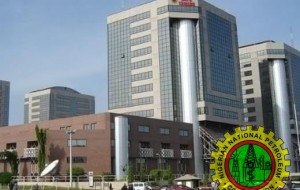London – A United Kingdom commercial court sitting in London has ruled in favour of the Nigerian National Petroleum Corporation (NNPC) in a suit filed by IPCO Nigeria over a dispute that arose from a contract to build an oil terminal in Port Harcourt, south-south Nigeria.
IPCO Nigeria is a subsidiary of the IPCO Group, an independent services provider for the international oil & gas and energy markets and a turnkey contractor and investor in energy infrastructure projects.
The corporation said in a statement in Abuja yesterday that the case, which stretched for a decade, initially arose from a dispute following IPCO’s claim that NNPC should bear the cost of variations which were alterations to the scope of works in the original construction contract, and which caused a 22-month delay to the works.
The statement, which was signed by the Group General Manager, Group Public Affairs Division of NNPC, Dr. Omar Ibrahim, explained: “Following arbitration proceedings in Nigeria, IPCO was awarded $150 million in 2004, together with annual interest running at 14 per cent, a ruling which was challenged by NNPC in the Nigerian courts.”
“However, since then, IPCO repeatedly sought to enforce the award in England before the conclusion of the proceedings in Nigeria resulting in three reported judgments in the case: IPCO (Nigeria) Ltd v Nigerian National Petroleum Corporation (2005) EWHC 726 (Comm); IPCO (Nigeria) Ltd v Nigerian National Petroleum Corporation (2008) EWHC 797(Comm); Nigerian National Petroleum Corporation v IPCO (Nigeria) Ltd (2008) EWCA Civ 1157,” Ibrahim further stated.
He noted that it was established that during IPCO’s previous attempt to enforce the award, NNPC discovered an evidence that IPCO had forged documents relating to the claim and the related arbitration in Nigeria.
He added that as a result, the parties agreed in 2009 to adjourn the enforcement proceedings and await the outcome of the challenge in Nigeria, however in a strange twist IPCO again sought to enforce the award in England in 2012.
Ibrahim said Mr. Justice Field of the UK commercial court in delivery of the judgment ruled that IPCO failed to establish any change of circumstances justifying a further application to enforce the award in whole or part in England, and that it is in Nigeria where the enforceability of the award must be decided.
The statement equally said that Field held that even if he had been persuaded that it were appropriate to consider enforcement afresh, he would still have refused to enforce any part of the award because NNPC has a good prima facie case that IPCO practiced a fraud on the arbitral tribunal that undermines the validity of the whole award.
The statement explained that the long-running dispute has also highlighted important issues regarding the interpretation by the English Courts of the New York Convention 1958 and the Arbitration Act 1996 in the context of enforcement of an arbitration award when a challenge is pending against it in the home country where the award was made which is Nigeria in this particular case.
Ibrahim stressed that the current judgment forecloses the door on IPCO’s attempts to seek enforcement in England and thus expressed NNPC’s gratitude to its legal team led by the UK based law firm, Stephenson Harwood LLP.
“We are very pleased that the English courts have found in our favour-protecting the interests of the Nigerian government and its people in this matter by concluding that IPCO Nigeria has no right to levy the original award against us,” Ibrahim added.



